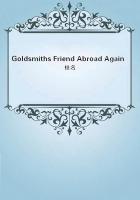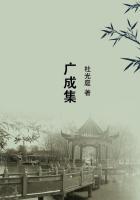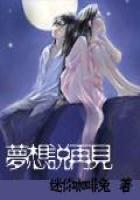"Now go to the chapel with Father John and pray. You will remain in the chapel until it is time to join the train. For your comfort and consolation, Father John will travel with you to Darwin. You are dismissed." They were wise and aware, the priests in administration; they would permit the sinner no opportunity to have further contact with the young girl he had taken as his mistress. It had become the scandal of his present parish, and very embarrassing. As for the girl--let her wait, and watch, and wonder. From now until he arrived in Darwin he would be watched by the excellent Father John, who had his orders, then after that every letter he sent from Darwin would be opened, and he would not be allowed to make any long-distance phone calls. She would never know where he had gone, and he would never be able to tell her. Nor would he be given any chance to take up with another girl. Dar- win was a frontier town; women were almost nonexistent. His vows were absolute, he could never be released from them; if he was too weak to police himself, the Church must do it for him.
After he had watched the young priest and his appointed watchdog go from the room, Father Ralph got up from his desk and walked through to an inner chamber. Archbishop Cluny Dark was sitting in his customary chair, and at right angles to him another man in purple sash and skullcap sat quietly. The Archbishop was a big man, with a shock of beautiful white hair and intensely blue eyes; he was a vital sort of fellow, with a keen sense of humor and a great love of the table. His visitor was quite the antithesis; small and thin, a few sparse strands of black hair around his skullcap and beneath them an angular, ascetic face, a sallow skin with a heavy beard shadow, and large dark eyes. In age he might have been anywhere between thirty and fifty, but in actual fact he was thirty-nine, three years older than Father Ralph de Bricassart.
"Sit down, Father, have a cup of tea," said the Arch-bishop heartily. "I was beginning to think we'd have to send for a fresh pot. Did you dismiss the young man with a suitable admonition to mend his conduct?"
"Yes, Your Grace," said Father Ralph briefly, and seated himself in the third chair around the tea table, loaded with wafer-thin cucumber sandwiches, pink and white iced fairy cakes, hot buttered scones with crystal dishes of jam and whipped cream, a silver tea service and Aynsley china cups washed with a delicate coating of gold leaf.
"Such incidents are regrettable, my dear Archbishop, but even we who are ordained the priests of Our Dear Lord are weak, all-too-human creatures. I find it in my heart to pity him deeply, and I shall pray tonight that he finds more strength in the future," the visitor said. His accent was distinctly foreign, his voice soft, with a hint of sibilance in its so's. By nationality he was Italian, by title he was His Grace the Archbishop Papal Legate to the Australian Catholic Church, and by name he was Vittorio Scarbanza di Contini-Verchese. His was the delicate role of providing a link between the Australian hierarchy and the Vatican nerve center; which meant he was the most important priest in this section of the world.
Before. being given this appointment he had of course hoped for the United States of America, but on thinking about it he decided Australia would do very nicely. If in population though not in area it was a much smaller country, it was also far more Catholic. Unlike the rest of the English-speaking world, it was no social comedown in Australia to be Catholic, no handicap to an aspiring politician or businessman or judge. And it was a rich country, it supported the Church well. No need to fear he would be forgotten by Rome while he was in Australia. The Archbishop Papal Legate was also a very subtle man, and his eyes over the gold rim of his teacup were fixed not on Archbishop Cluny Dark but on Father
Ralph de Bricassart, soon to become his own secretary. That Archbishop Dark liked the priest enormously was a well-known fact, but the Archbishop Papal Legate was wondering how well he was going to like such a man. They were all so big, these Irish-Australian priests, they towered far above him; he was so weary of forever having to tilt his head up to see their faces. Father de Bricassart's manner to his present master was perfect: light, easy, respectful but man-to-man, full of humor. How would he adjust to working for a far different master? It was customary to appoint the Legatal secretary from the ranks of the Italian Church, but Father Ralph de Bricassart held great interest for the Vatican. Not only did he have the curious distinction of being personally rich (contrary to popular opinion, his superiors were not empowered to take his money from him, and he had not volunteered to hand it over), but he had single-handedly brought a great fortune into the Church. So the Vatican had decided that the Archbishop Papal Legate was to take Father de Bricassart as his secretary, to study the young man and find out exactly what he was like.
One day the Holy Father would have to reward the Australian Church with a cardinal's biretta, but it would not be yet. Therefore it was up to him to study priests in Father de Bricassart's age group, and of these Father de Bricassart was clearly the leading candidate. So be it. Let Father de Bricassart try his mettle against an Italian for a while. It might be interesting. But why couldn't the man have been just a little smaller? As he sipped his tea gratefully Father Ralph was unusually quiet. The Archbishop Papal Legate noticed that he ate a small sandwich ******** and eschewed the other delicacies, but drank four cups of tea thirstily, adding neither sugar nor milk. Well, that was what his report said; in his personal living habits the priest was remarkably abstemious, his only weakness being a good (and very fast) car.
"Your name is French, Father," said the Archbishop Papal Legate softly, "but I understand you are an Irishman. How comes this phenomenon? Was your family French, then?"















